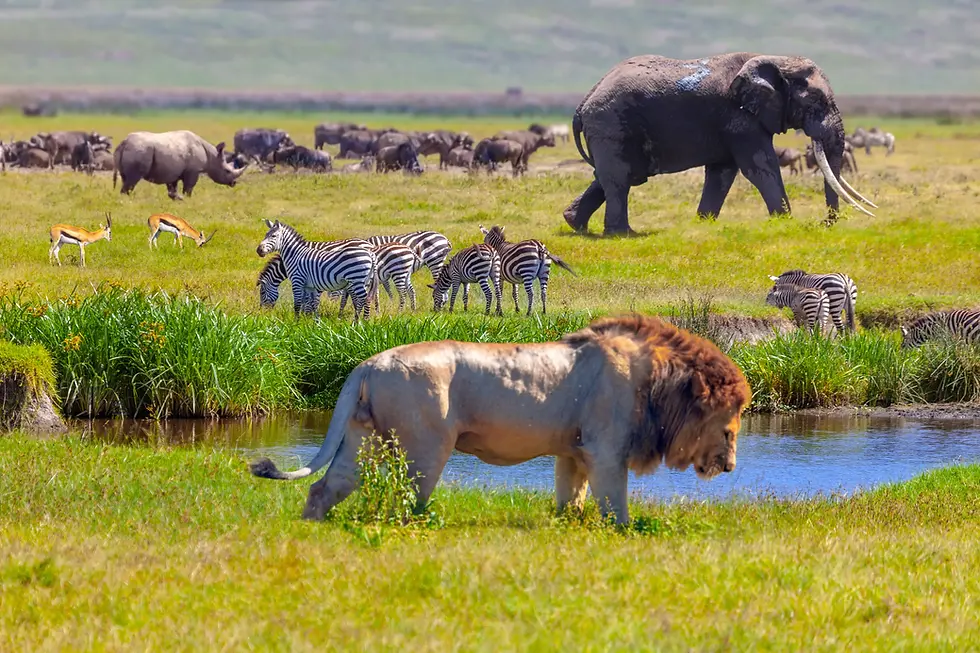A Wake-up Call on Waste
- Pooja Srikanth
- Mar 30
- 3 min read
Last week, I had a whole week off for spring break. Of course, I wasn't while all my other friends were on vacation. But I had other things to do, like staying home and being lazy all day. But while being lazy at home, my mom forced me to get groceries, so I did that instead. But I noticed something significant when I finally stepped out of my house. For one, I noticed how people recycle and deal with waste, which was disappointing. They’d throw their trash and recycling into the first waste bin they see and give little regard to where they’re throwing trash. That’s when I realized I had to do something about this. Or at least I have to look into this to see its negative impacts.
Whether you like it or not, we’ve all improperly disposed of recycling, trash, or whatever we’re throwing away. It’s not like we want to harm our environment, but it just happens.
That’s why it’s essential to recognize the different types of waste. Whether it’s solid, hazardous, or electronic. We need to understand the difference. Solid waste is discarded materials like paper, glass, plastics, food waste, and things we use regularly that must be thrown away. Hazardous waste is waste that is either toxic or hazardous to humans and needs specific disposal, or it can harm us or animals. Finally, Electronic waste is also known as E-waste. This waste refers to phones, i-Pads, computers, and anything else considered an electronic device. If we cannot differentiate between these, we will likely misuse them and harm humans and animals, so we must focus on recycling or composting our trash.
Once our trash and resources are recycled, they create new items from those old items and conserve resources. This is a great way to recycle paper and cardboard items because once you have a piece of paper in class, you can recycle it for the following paper someone else may write. Another example is if you recycle plastic water bottles, then you can recycle them, and the microplastics can be melted down for more bottles rather than discarded into the ocean. Finally, another way people deal with trash is through composting. Composting is taking old food scraps and using them for compost and fertilizer for the earth. This can then provide additional protection for our soil if we want to plant other foods or plants for consumption.
Now, this is all great, but a handful of us still don’t care and realize the detrimental impacts. We all know that plastics not being recycled can harm animals and ultimately kill them. But do we truly understand what it’ll do to us? Plastic pollution can cause climate change because it results in unwanted greenhouse gas releases and causes droughts, heat waves, and several other things that impact humans. Not only that, but Plastic pollution can cause significant economic losses, including natural capital losses—which might cause governments to spend more money on pollution rather than education, architectural projects, etc. Finally, microplastics from plastic pollution have been found in human bodies and are a growing concern due to their potential health effects.
So what do we care? Because all of this comes back to haunt us and hurt us. So, next time my mom forces me to go to the grocery store on my time off, I hope I’ll see people recycling correctly. Like I always say, we are the cause, but we are the change.
Works Cited:
“Plastic Pollution.” IUCN, 22 May 2024, iucn.org/resources/issues-brief/plastic-pollution#:~:text=It%20threatens%20human%20health%2C%20affects,metric%20tons%2C%20polluting%20all%20ecosystems.
EPA, Environmental Protection Agency, www.epa.gov/hw/defining-hazardous-waste-listed-characteristic-and-mixed-radiological-wastes. Accessed 25 Mar. 2025.




Comments